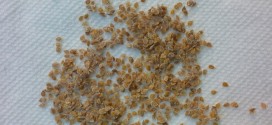So, you have read about GMO, about all the chemicals that are found in our food and the impact conventional farming has on our planet, and that organically-grown foods are more nutritious, and you have decided to eat organic. Good for you! You now also know where to buy organic, but you feel that is not nearly enough. You want to grow your own food, and a balcony is tiny and a backyard is too small.
You have seriously considered investing in organic food, and determined that the only way to go is to own your own farm. Of course we can rent a farm, but that’s an entirely different story.
First Things First
Before deciding on what and where to buy, a few things need be considered first.
- What’s the way of life you are envisioning? A full-time farmer? Or you will keep your daytime job and only farm on the side? Being a farmer might not be as rosy as some describe. Do you mind working from sunup to sundown for weeks in a row, and then have not much to do for a couple of months?
- What farming experience do you have? Did you grow up on a farm? Did you ever dirty your hands trying to grow something in a pot?
- What type of farm are you considering? Vegetables? Fruits? Field crops? Poultry? Eggs? Pork? Beef? Dairy? Or will it be a self subsistence farm where you produce food for the family and only sell the surplus?
- If you are quitting your job to devote all your time to the farm and you will be relying on the farm to raise a family, stop for a while and think it out clearly. Farming businesses fail at a very high rate in the first few years. If the farming adventure does not work out as expected, what’s the Plan B? What’s the exit strategy?
You can, of course, decide on these things later on but it’s better to think a bit about the way of life you expect. Depending what you want to do with the farm, you might also need a business plan. After you get a satisfactory answer to the above questions, it’s time to seriously consider some serious things before you plunge hundreds of thousands of dollars into it.
Here is a list of things to consider when buying a farm (this is in no way exhaustive):
Location
Just like buying a house, you will need to decide first where you want your farm to be. Does it need to be close to where you live right now? Or it does not matter where to go as long as you find your dream farm? If you have kids going to school, does the school bus pass by the house? Is the school good? It’s no fun to drive the kids to and from school during a 14-hour working day. Is the farm close to the your target consumers? Where is the nearest farmer’s market?
Acreage
The way you farm will determine how much land you will need and the type of land, like pasture, or tillable land, flat or slope. If you are planning to mainly grow vegetables, you will need a much smaller land than if you want to grow field crops, like wheat or soybeans.
Water
Water is always necessary to whatever you grow or raise. Chances are that you do not have access to the municipal water system. So you will need your own well and if you have a stream, find out if you can use the water for irrigation. Do a water lab test to see if the water is good to drink. Determine the volume of water you will need for your farming operations. Who lives upstream? Is there any contamination?
Soil
As long as you plan to farm on the land, you should always have a soil test. Such a test will tell you the soil type, what chemical residues are in your soil, what nutrients are present or missing, what percentage of organic matter is the soil composed of.
Farm House
If the farm comes with a house, great. A house is a house, just make sure that it’s in fair condition; and if not you are ready and able to make any repairs necessary. If there is no house, can you get a permit to build a house? Learn about the septic system.
Neighbors
Are your future neighbors in conventional farming? Do they use GMO? If you are considering getting organic certification, consult a certifying body to see if it’s even possible for you to get certified if surrounded by conventional farmers and GMO growers.
Access to your property
Do you have access to a public road? If not, what easements do you have? Who has what easements on your land?
Use of professionals
A good agent will be of great help in your search for your dream farm. They know what questions to ask and where to look for potential issues, and where to point you to when and where other professional advice should be sought. Take your time in your search of an agent. You might also need a good accountant and a lawyer, if you do not already have one.
Then, of course, the above is in no way advice on investment. The standard disclaimer always applies.
 EatingOrganic.CA eating healthy, ethical & eco-friendly
EatingOrganic.CA eating healthy, ethical & eco-friendly




